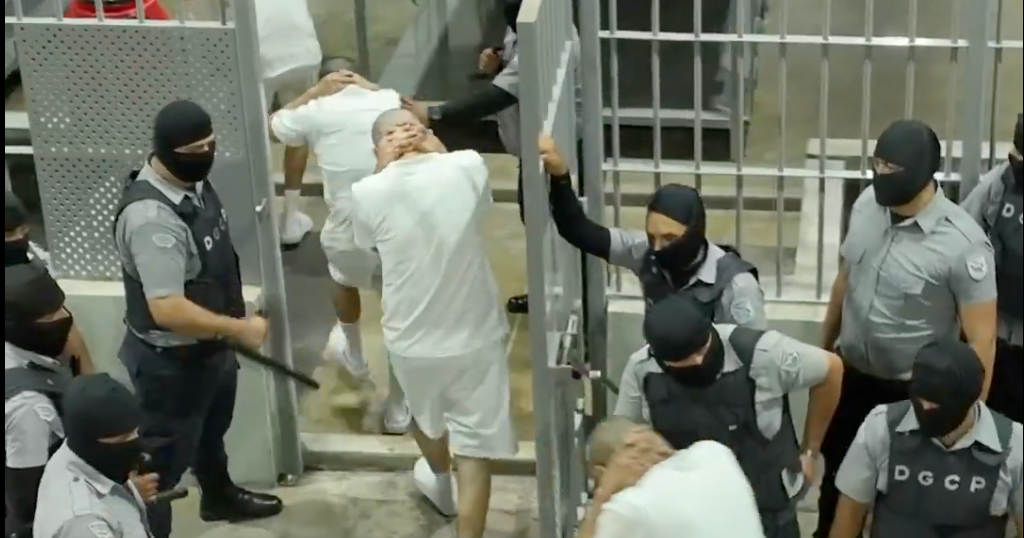
Wife of man mistakenly sent to El Salvador prison says she fears for his safety: “My husband’s not a criminal”
2. April 2025
Washington — The U.S. citizen wife of a 29-year-old man who the Trump administration has admitted was mistakenly deported to El Salvador said she fears for his safety in the infamous mega-prison where he’s being held, maintaining that her husband is “an amazing father” and “not a criminal.”
Kilmar Abrego Garcia was deported to El Salvador on March 15 and imprisoned inside that country’s maximum-security prison known as CECOT, as part of a series of U.S. deportation flights that have ignited a high-stakes legal battle in American courts.
The Trump administration has acknowledged in federal court that his deportation was an “administrative error,” since an immigration judge in 2019 had granted him legal protection from being sent to El Salvador. But it has rejected requests to bring back Abrego Garcia, saying the U.S. no longer has custody over him. It is also accusing him of being part of MS-13, a transnational criminal gang. Abrego Garcia’s lawyers have said in court documents that their client has no criminal record, a finding the government has not contested.
During an exclusive interview with CBS News, Jennifer, Abrego Garcia’s wife, said she confirmed her husband had been deported from the U.S. and imprisoned at the CECOT prison after identifying him in a photo posted by the Salvadoran government.
“When I saw it, I immediately broke down ’cause I knew it was him,” she said. “I was scared for his life.”
Jennifer, who requested that her surname be withheld, said she was “very scared” about Abrego Garcia’s transfer to CECOT because it houses some of El Salvador’s most dangerous gang members. After all, she said, the reason a U.S. immigration judge in 2019 granted him a reprieve from deportation was because of concerns that he could be persecuted by gangs in El Salvador.
“I’ve seen news of that prison,” she said. “I know they take criminals there. And my husband’s not a criminal.”
Abrego Garcia came to the U.S. in 2011, when he was 16. According to court documents, he entered the country illegally, without being inspected by immigration officials.
In 2019, Abrego Garcia was arrested by Immigration and Customs Enforcement after an encounter with local police outside of a Maryland Home Depot. Abrego Garcia’s attorneys said he went there looking for work. He remained in ICE detention for months, while an immigration judge reviewed his case.
Court documents show an immigration judge initially denied Abrego Garcia’s release on bond, partially due to information submitted by the government that it said tied him to MS-13. The judge’s bond denial, which was upheld by an immigration appeals board, mentioned information from an informant who the government deemed to be credible.
But Abrego Garcia was ultimately released from ICE custody after another immigration judge granted him “withholding of removal,” a legal classification that bars officials from deporting individuals who prove they are more likely than not to face persecution in their home country. In his order, the judge said Abrego Garcia could be targeted by gangs if sent to El Salvador.
Jennifer said her husband attended regular check-ins with ICE after he was released. He became their family’s main breadwinner, she added, and helped her raise their 5-year-old disabled son, as well as two children from a previous relationship. He worked five days a week as a sheet metal worker while also attending college classes, she said.
On March 12, however, Abrego Garcia was again arrested by ICE. Jennifer said he was driving with their 5-year-old son with disabilities when he was stopped. She said she rushed to the location and was told by ICE officials that her husband’s status had “changed” and that he would be fingerprinted and detained.
Over the next few days, Jennifer said her husband was transferred to different immigration detention centers, including ones in Louisiana and Texas. During their last phone call, Jennifer said Abrego Garcia told her that he was going to be deported to El Salvador and imprisoned at CECOT.
Jennifer said she couldn’t believe it. She told her husband there was no reason for the U.S. to send him to a foreign prison. He said that if she didn’t receive another call from him, it would be because he had been deported.
“He never called,” Jennifer said. “I waited and waited. He never made that call.”
Jennifer said she has not heard from her husband since that call and has not found a way to communicate with him. She’s now suing the government as part of a lawsuit before the federal district court in Maryland that is demanding that the U.S. government take steps to bring Abrego Garcia back to the country.
While it has conceded it mistakenly deported Abrego Garcia, the Trump administration has defended the merits of his deportation and has told the federal court in Maryland it opposes his return to the U.S.
The Justice Department has argued that federal courts lack the authority to facilitate Abrego Garcia’s return, since he’s now being held by the Salvadoran government and no longer in U.S. custody. Even if they did have the power to order his return, the Justice Department said in a filing, there has been “no showing that El Salvador is even inclined to consider a request to release a detainee at the United States’ request.”
Trump administration officials, including White House press secretary Karoline Leavitt, have described Abrego Garcia as an MS-13 “leader” who is implicated in human trafficking. Officials have yet to disclose concrete evidence that supports those claims.
Jennifer strongly refuted the White House’s accusations, saying she would know if her husband was a gang member. Court documents indicate Abrego Garcia has traffic violations, but no criminal charges or convictions, in the U.S.
“He’s not a criminal,” Jennifer said. “My husband is an amazing person. An amazing father.”
